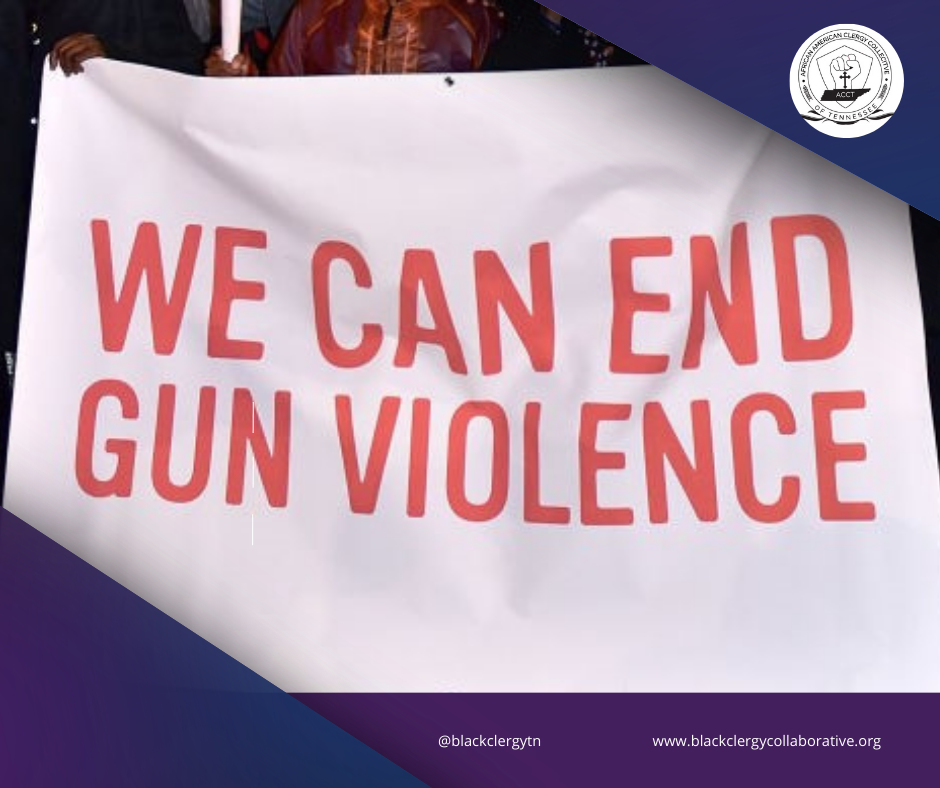Organizations in Memphis, Nashville, Knoxville, and Chattanooga have partnered with the African American Clergy Collective of Tennessee (ACCT) to address gun violence as a public health crisis.
“We know our worth — and when we join together as Tennesseans, we can demand that during the special session on safe communities and in the years ahead, the Supermajority Legislature and other decision-makers listen to what our families, from Knoxville to Bolivar, are calling for, common-sense policy solutions that recognize gun violence as a public health crisis and implore an evidence-based public health approach to reduce gun violence,” the ACCT said in a statement.
The ACCT said they will utilize the “public health approach outlined by the Centers for Disease Control and Prevention and World Health Organization to reduce gun violence.”
Shirley Bondon, executive director of ACCT and the Black Clergy Collaborative of Memphis, said they are not just concerned with school shootings, but all shootings.
“While school shootings are devastating, we have more children in our communities dying from suicides, drive-bys, accidental deaths, than all the school shootings put together,” said Bondon. “We want people to understand that’s why it needs to be comprehensive — to address all those issues.”
The Flyer spoke with Bondon about their specific approach, purpose, and plans to engage stakeholders.
Memphis Flyer: What are some of the key factors you believe contribute to gun violence, and how can a public health approach help address these?
Shirley Bondon: The public health approach brings resources, state, federal, and local, to an issue that impacts the entire community. We see this when we look at the opioid crisis, anything like that, with broad impact on people, that it takes a comprehensive approach to a pressing issue.
The root cause of gun violence can be trauma related to seeing violence in your community. It can impact children and their mental health. It can impact the elderly, when there is fear around crime and other problems within the community. We want it to be [approached as] a public health crisis because then you can provide resources and help them [the youth] deal with their anger or to deal with disagreements in a way that doesn’t involve violence — doesn’t involve guns or fighting — it helps to prevent gun violence. It can also be an intervention. Gun violence can impact you economically. If you have to go to the hospital, the medical debt is huge. If you’re saddled with medical debt, it can bankrupt the whole family. It’s harmful to the community at large. When there’s gun violence in the community, it will drive away business and economic development.
We’re looking for a comprehensive approach to address gun violence.
How do you plan to engage with community organizations, advocacy groups, and other stakeholders to address this?
There are intervention programs. There are organizations that go out in the community and work with the residents to help them to address the crime and violence in their communities, and to improve those communities. They can help them with their mental health issues, provide social services. Anything that will address the poverty and the trauma when it comes with the cycle of violence.
What are some of the potential challenges or barriers you anticipate in implementing a public health approach to address gun violence, and how do you plan to overcome them?
The greatest barrier is getting the decision-makers to see that it is a public health crisis and allocating the resources necessary to have a significant impact. Many of the things currently being proposed are really addressing the symptoms of gun violence, rather than the root cause, and so getting the decision-makers to understand that addressing the symptoms is not enough, and that there isn’t a quick fix. We didn’t get this way overnight and we can’t improve it overnight, so you really have to be in it for the long haul.
How do you all plan to engage with firearm owners or any Second Amendment advocates while working to reduce gun violence?
What most people don’t understand is that we’re not trying to take away their guns. We’re going to stress gun safety. We have a significant number of deaths in our community that are accidental deaths as it relates to gun violence. Then also we have people stealing guns that are not stored securely. We want gun owners to store their guns safely. We want them to take training on how to use their weapons safely. Those are the things we will do with them to understand gun safety.
Can you talk about the importance of collaborating with other organizations to address this issue?
We can’t do any of this alone. Because it is a public health crisis, it impacts everyone, and every avenue of society, every corner, every age group, and that’s why it’s important for educational awareness, to have everyone involved.
